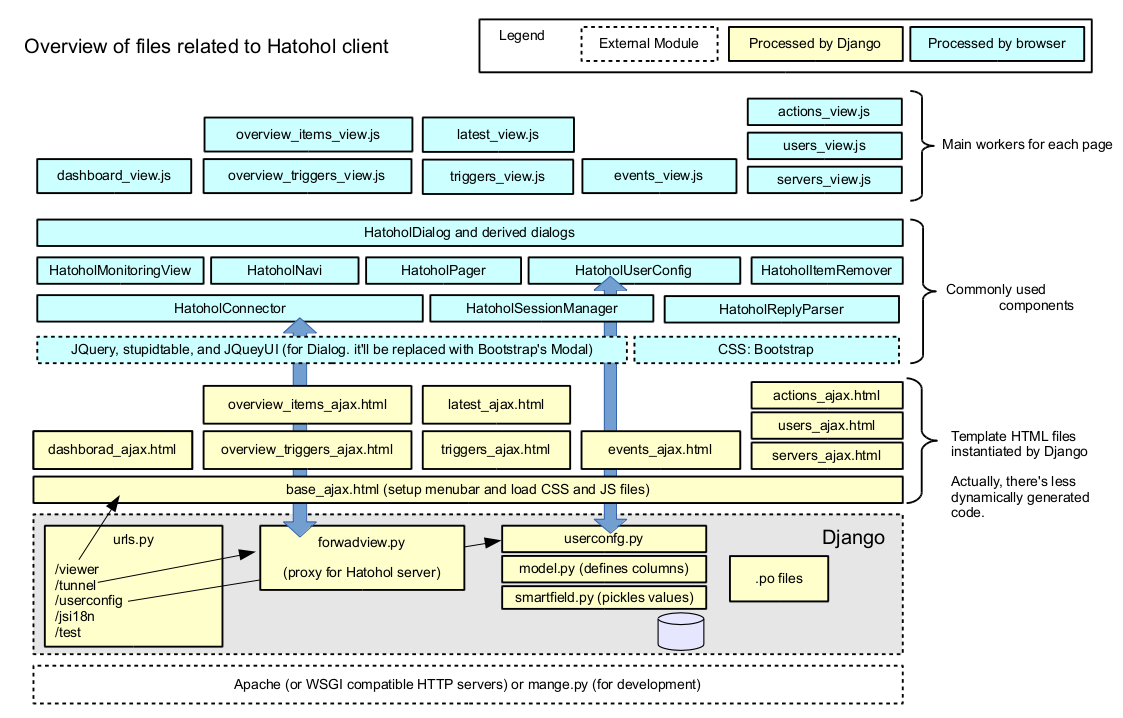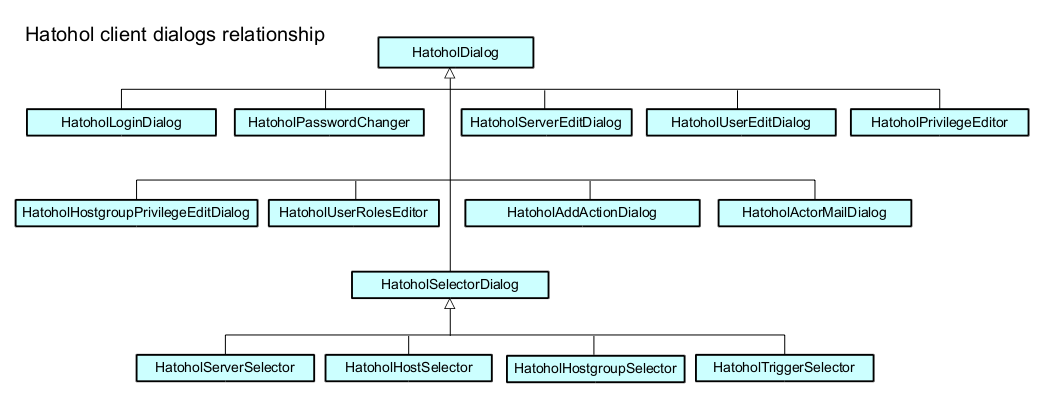Hatohol frontend (web) technical information - project-hatohol/hatohol GitHub Wiki
Overall picture

Each screen (such as Dashbord, events, servers, ...) mainly consists of one HTML file and one javascript file such as (dashboard_ajax.html and dashboard_view.js).
Dialogs

Objects
HatoholConnector
- calls a Hatohol REST API in conjunction with the session ID.
- shows a login dialog if a browser doesn't have a session ID.
- parses the response.
- shows a login dialog if the error code is HTERR_NOT_FOUND_SESSION_ID.
- stores the obtained session ID to SessionManager.
- A caller can specify the custom parser and the error callback handler.
- shows a login dialog if the error code is HTERR_NOT_FOUND_SESSION_ID.
- shows a message box on connection errors and HTTP errors (such as 404)
- uses jQuery's ajax() function to send requests.
- A request (/tunnel/...) is handled by forwardview.py that proxies it.
HatoholReplyParser
- parses the common header of response.
- apiVersion
- errorCode
- translates an error code into the corresponding message.
- can be used as the base object for the custom parser.
HatoholMonitoringView
- provides common functions to show filters and handle the events.
HatoholNavi
- shows menus depending on the user.
- For example, 'Action' menu is not shown for users who are not allowed to operate it.
HatoholUserConfig
- reads/writes data for each user such as
- the number of displayed items per page.
- Data itself is managed by Django (actually stored in MySQL DB)
- Any type (string, integer, ...) of data can be handle seamlessly
HatoholItemRemover
- A helper to remove items such as (monitoring servers, actions, users).
Multiple languages support
- uses the Django's framework.
- Developers have to
- wrap a message around gettext() in the JS/HTML file.
- prepare for .po files (under conf/locale/ja/LC_MESSAGES).
- Currently English and Japanese are supported.
- The displayed language is automatically selected.
- Users can specify the language by inserting 'en' etc. in the path such as